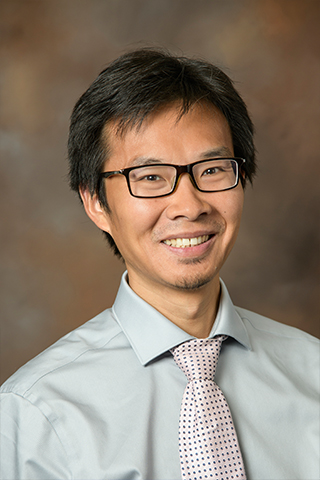Member Profile
Department of Medicinal Chemistry
Ernest Mario School of Pharmacy
Email: junwang@pharmacy.rutgers.edu
Research Interests
Research in the Wang Laboratory is directed towards developing antivirals targeting emerging and re-emerging viruses, including influenza A and B viruses, enterovirus D68 (EV-D68), EV-A71, coxsackievirus, poliovirus, and the coronaviruses such as SARS-CoV-2. The central theme of the Wang laboratory has been the identification of new drug targets and the development of novel small molecules for use as chemical probes for target validation as well as drug candidates for translational research. For influenza virus, we have developed inhibitors targeting the M2 proton channel (S31N and V27A), the viral polymerase PA-PB1 protein-protein interactions, and the hemagglutinin. For enteroviruses, we have designed inhibitors targeting the viral capsid VP1 protein, the viral 2A protease, the viral 2C protein, and the viral polymerase. For SARS-CoV-2, we recently identified several potent main protease inhibitors and papain-like protease inhibitors. In addition, we are also pursuing host-targeting antivirals to conquer drug resistance.
The Wang laboratory consists of the chemistry lab and the biochemistry lab. Techniques implemented in the Wang laboratory include but not limited to structure-based drug design, high-throughput screening, medicinal chemistry, electrophysiology, peptide chemistry, biophysics, and virology. Researchers in the Wang Lab have opportunity to explore all aspects of pre-clinical drug discovery in the same lab starting from molecular-level design to in vivo mouse model studies.


